The table offers a detailed summary of the Royal Air Force (RAF)’s current fleet, organised by type of aircraft, encompassing jets, propellers, rotorcraft, gliders, and unmanned aerial vehicles (UAVs).
For each type, the role, introduction year, and the number presently in service are specified. The RAF’s fleet features a mix of aircraft, including multi-role fighters such as the Eurofighter Typhoon and the stealth Lockheed Martin F-35B Lightning, specialised aircraft for intelligence, surveillance, target acquisition, and reconnaissance (ISTAR), alongside tankers, transports, and trainers.
Additionally, the table includes aggregate counts for fixed-wing, rotary-wing, and UAV platforms.
| Type | Class | Role | Introduced | In Service |
|---|---|---|---|---|
| Eurofighter Typhoon | Jet | Multi-role | 2007 | 137 |
| Lockheed Martin F-35B Lightning | Jet | Stealth Multi-role | 2013 | 34 |
| Boeing E-7 Wedgetail AEW.1 | Jet | AW&C | 2022 | 0 |
| Beechcraft Shadow R.1 | Propeller | ISTAR | 2009 | 6 |
| Boeing RC-135W Rivet Joint | Jet | SIGINT | 2013 | 3 |
| Boeing P-8 Poseidon MRA.1 | Jet | ASW/Anti-ship | 2019 | 9 |
| Airbus Voyager | Jet | Tanker / Transport | 2011 | 14 |
| Boeing C-17A Globemaster III | Jet | Transport | 2001 | 8 |
| Airbus A400M Atlas C.1 | Propeller | Transport | 2014 | 22 |
| Dassault Envoy IV CC.1 | Jet | Transport | 2022 | 2 |
| Leonardo AW109SP | Rotorcraft | Transport | 2016 | 1 |
| Boeing Chinook | Rotorcraft | Transport | 1980 | 57 |
| Westland/Airbus Helicopters Puma HC.2 | Rotorcraft | Transport | 1971/2013 | 14 |
| Airbus H145 Jupiter HC.2 | Rotorcraft | Transport | 2024 | 6 |
| Airbus H135 Juno HT.1 | Rotorcraft | Trainer | 2018 | 29 |
| Airbus H145 Jupiter HT.1 | Rotorcraft | Trainer | 2018 | 7 |
| BAE Systems Hawk T.2 | Jet | Jet trainer | 2009 | 28 |
| Beechcraft Texan T1 | Propeller | Trainer | 2018 | 14 |
| Embraer Phenom T.1 | Jet | Trainer | 2018 | 5 |
| Grob Prefect T.1 | Propeller | Trainer | 2018 | 22 |
| Grob Tutor T.1 | Propeller | Trainer | 1999 | 91 |
| Grob Viking T.1 | Glider | Trainer | 1990 | 52 |
| General Atomics MQ-9A Reaper | UAV | ISR / Attack | 2007 | 9 |
| Protector RG1 | UAV | ISR / Attack | 2023 | 1 |
| British Aerospace Hawk T.1 (RAF Red Arrows) | Jet | Trainer | 1980 | 12 |
| Total Fixed-Wing | 347 | |||
| Total Rotary-Wing | 114 | |||
| Total UAVs | 10 |
RAF Battle of Britain Memorial Flight
It’s important to note that the aircraft listed in this table are part of the Battle of Britain Memorial Flight and are not operationally deployed. They are maintained and flown to commemorate the RAF’s pivotal role in World War II, particularly during the Battle of Britain.
| Type | Class | Role | Introduced | In Service |
|---|---|---|---|---|
| Avro Lancaster (PA474) | Propeller | Heavy bomber | 1942 | 1 |
| de Havilland Canada Chipmunk | Propeller | Trainer | 1946 | 2 |
| Douglas Dakota | Propeller | Transport | 1942 | 1 |
| Hawker Hurricane | Propeller | Fighter | 1937 | 2 |
| Supermarine Spitfire | Propeller | Fighter | 1938 | 6 |


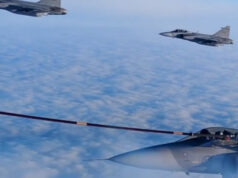
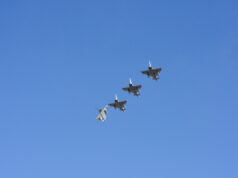

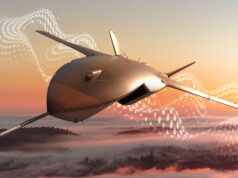
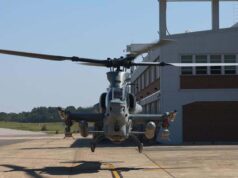
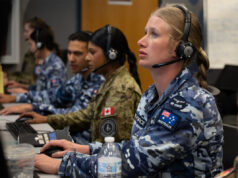
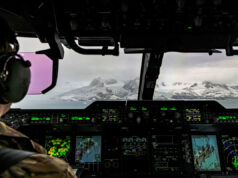
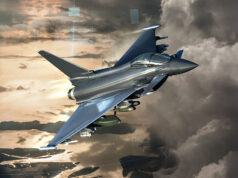
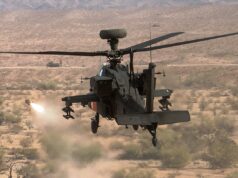
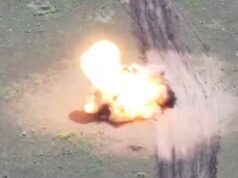

Well that’s not true is it…. 137 Typhoons ? 34 F35b’s ? … we might actually own them but we most certainly don’t operate them. At least we have a Heavy Bomber and 6 Spitfires though…… Would be comforting to know they could keep HMS Victory safe in times of war……….. (look, don’t bother coming at me, you know it’s mostly just sarcasm). But then again 🤔😃
“Well that’s not true is it…. 137 Typhoons ?”
Yes, it is true, until next year, that is when 28 T1’s will be withdrawn from service.
A portion of the fleet will be a wartime reserve.
Not sure does the RAF exercise the war reserve crews regularly?
How many operational & serviceable aircraft should be the question. Up to a 25% percent could be affected by service / breakdown issues. 40 Typhoons with ECRS 2 / P4E is woefully inadequate
Yes, the T2’s should be upgraded to ECRS2/P4E standard.
But you missed the next sentence ……
How many of these are Typhoon-shaped collections of spare parts?
I’d suggest that the 137 claim is deloberately deceptive,
We don’t have a war time reserve, aircraft not with front line Squadrons will be in maintenance or will be an attritional reserve. There are no reserve crews for them, in the Cold War the OCUs had Shadow Squadron numbers and would have activated as combat Squadrons. Aircrew instructing on types like Hawk/Tucano would likely have gone back to the operational type they were on before instructing. TWU Hawks and Red Arrows would have been used as emergency air defence possibly in mixed formations with Phantoms or Tornados.
I doubt the RAF has war reserve crews. Never heard that before.
Not enough
Isn’t that just the truth!
Several senior military people from several nations are warning about the increasing possibility of a war in Europe beyond the Ukraine border. This being the case, the UK contribution may be enough if combined with other NATO and non-Nato partners. If however, in the event of such an engagement without a unified European component, then we may all be in danger. The US will step up to the plate even with a Trump presidency, but it might be tempered by US public opposition? The current vacuum of concern shown by Westminster is puzzling and Churchill will be turning in his grave at this situation.
Absolutely 👍
The airframe inventory of the Royal Air Force in 1989 consisted of the following aircraft:[12]
Combat aircraft
* 229x Tornado GR1 / GR1A — additional 26x GR1 on order
* 165x Tornado F2 / F3 — additional 15x F3 on order
* 100+ Phantom FG1 / FGR2
* 14x Phantom F-4J(UK) F3
* 100+ Jaguar GR1 / GR1A / T2
* 80+ Harrier GR3 / T4
* 94x Harrier GR5 / GR7 — deliveries ongoing
* 65+ Buccaneer S2B
* 36x Nimrod MR2
Special mission
* 3x Nimrod Nimrod R1
* 6x Avro Shackleton AEW2
* Sentry AEW1 — 7x on order
* 40+ Canberra PR9 / T17
* 7x Andover E3 / E3A
Cargo and aerial refuelling
* 14x Victor K2
* 13x Vickers VC10 C1
* 4x/5x Vickers VC10 K2 / K3
* 9x Tristar K1 / KC1
* 6x Hercules C1K
* 24x Hercules C1 / C1P
* 30x Hercules C1 / C3
* 6x Andover C1
* 6x Andover CC2 — VIP Flight
* 2x BAe 146 CC2 — 1x on order, Queen’s Flight
* 4x/2x/6x BAe 125 CC1 / CC2 / CC3
* 2x Pembroke C1
Helicopters
* 36x Chinook HC1
* 41x Puma HC1
* 18x Sea King HAR3
* 65x Wessex HC2
* 2x Wessex HCC4 — Queen’s Flight
* 27x Gazelle HT2 / HT3
* 3x Gazelle HCC4 — VIP Flight
Trainers
* 117x Bulldog T1
* 62x Chipmunk T10
* 163x Provost T3A / T5A
* 160+ Hawk T1 / T1A
* 12x Hunter T7 / T8
* 20x Dominie T1 — navigation trainer
* 2x Jetstream T1
* Tucano T1 — 130x on order, deliveries beginning in December 1989
Back in the day it was an air force not a defence force.
Today’s air force would eclipse the air force of the early 90s. Capability trumps airframe numbers every single time.
Any yet today’s fleet would eclipse that fleet in capability.
At what point in the continuous cuts in numbers will you actually worry ?
Modern air warfare isn’t about simple numbers anymore. Of those nations with superior numbers, how many are actually operational, what can they actually do with them. How many can fly a 3000 mile round trip, hit targets with pin point accuracy in any weather day or night and return home fully supported. Not many. Future mass will come from drones. The manned version of Tempest will be in small numbers, If it happens. Every conflict since the end of the cold War we have been part of a large coalition. Russia over Ukraine has demonstrated its air force is pretty useless. What happened to these impressive SU35s? ect. Useless, because they don’t have the capability. A deployable Expeditionary air wing of 30 or 40 Typhoons and 24 F35’s would create havoc for any potential enemy. Now of course I’d like to see more in service. But the investment in capability comes first otherwise we might as well stay at home. As things stand, the fast jet fleet will be at 181 in the early 2030’s if we get to 74 F35’s. But drone numbers will make up a big bulk of the future combat air mass.
Did you not see that recent “documentary” Top Gun Maverick? A 1970’s F14 takes out a 5th gen.
I fear limiting ourselves to so few aircraft will result in us being overwhelmed, no matter how far superior we hope thay are. Complacency has large, sharp teeth that bite us on the backside.
But who is going to overwhelm us? Russia hasn’t managed to overwhelm Ukraine with its very limited airforce.
Now that’s what I call an Air force ,looking at the list brings tears to the eye to what we have now 😪 🇬🇧
interesting how the proportion of the fleet that are trainers has grown since 1989. I’d have thought with modern tech and simulators the proportion of trainers would have reduced over time?
Yes, it appears that the number and/or mix of types of fixed wing RAF training aircraft may be out of kilter compared to the fleet size and fast jet training requirements, with training aircraft accounting for more than half (53%) or 184 out of the 347 current RAF fixed wing airframes in inventory.
It is interesting to compare the ratio and type of training aircraft used by the RAF and RAAF with their respective fast jet combat aircraft fleet (say around 2025 when numbers have stabilized for both air forces – RAF minus Tranche 1 Typhoon but including final Tranche 1 F35B numbers and RAAF with final F35A deliveries).
The ratios of trainers to frontline fast jets will be almost identical for RAF 184 trainers to 157 fighters (.85) and RAAF 90 trainers to 109 fighters (.82).
However, the RAAF has 33 Hawk LIFT trainers (versus 28 Hawk T2) and 49 Pilatus PC21 (versus just 14 Texan T1) – the PC21 being significantly faster (370 knots vs 316 knots than the Texan) and more agile with jet fighter like roll rates in excess of 200 degrees per second and rated to 8G. The RAAF also operates seven PC21 flight simulators and three Hawk LIFT full mission simulators.
While the RAAF Cadet scheme uses 8 Diamond DA40NG aircraft (similar to Grob Tutor) these are operated by a contractor and commercially registered and so not counted in RAAF fleet numbers.
The RAF’s mix of trainer aircraft skewed to relatively low end performance ab-inito trainers (Grob Prefect and Tutor) and smaller numbers of Texans and T2 Hawks (compared to RAAF PC21 and Hawk LIFT numbers) might help to partially explain the reported bottleneck in the RAF fast jet training pipeline.
Counting gliders and ab-initio trainers at least makes RAF numbers seem more impressive.
Wow good info, makes you realise what we did have in the past! However numbers do matter of course but so does capability, and modern platforms are way more capable! But, there is always a minimum number by which you cannot go below and I believe we are there! For example 4 Typhoons may be able to replicate the ability of say 16 Tornadoes, but those 4 Typhoons are still only 4!
Those figures reflect the Cold War fleet; it was inevitably much larger. The bigger question is how far the numbers fell over the years since ‘right-sizing’ for the post Cold War era was achieved by the Options for Change defence review.
Nowhere near enough!!!
Yes, it’s depressing. We should be aiming to operate 400 fast jets which was what was outlined before Cameron and Osborne started chopping.
Yes, but that is not accurate, Jim.
By the time Cameron and Osborne came in 2010 we had already fallen from 30 plus fast jet Sqns from 1989 to just 12. In 1997 there were around 23.
12 Sqns don’t have 400 fast jets!
But yes, they still took a cleaver to it, for which they will never be forgiven.
Unfortunately, Joe public care not a jot and are mostly unaware unless they are ex military so have an interest or people like us here.
Even 12 squadrons would be great right now.
8 Typhoon and 4 F-35, or 7/5 even.
I always wonder how them Gentleman sleep at night , after making them cut specially now we have war in Europe .All three services have still not recovered and now it’s starting to show 😞
They sleep fine because its really not a problem for them, doesn’t affect a significant amount of votes for them.
Without reading the article, I’m referring you to Paul Daniels.
Not a lot …. not a lot !
(I will now read the article.)
(How many more F35s could we afford if we had bought CV90s not Ajax, for example?)
Fair point 🤔
Or bought the better variant, and built a carrier that could launch proper aircraft, and catch them
Isn’t the Grob 115e owned by Babcock?
Quite a few of those aircraft are COMO, Contractor Owned, military operated. They’ve thrown gliders in too.
Babcock owns and operates them on behalf of the MOD.
Are we down to 14 Pumas? I know they are planned to be replaced but 14 seems low! Ah, but if only 14 remain then the replacement numbers can be reduced but at the same time the politicians can say a 1 for1 replacement (along with a few other rotary platforms I am aware of) Daniele will know the numbers but maybe 40-45 platforms replaced by 25 or less?
That cant be all. It mentions Reaper and Protector but no other UAV or large drones.
Watchkeeper?
Watchkeeper and other small drones will be with the Army.
Notwithstanding the quality, the tiny number on the front line is truly shocking! In addition this includes an FAA sharing!! With the UK’s defence budget up in the top ten I am sure I am not alone in being totally mystified by it all.
I fear a lot of the budget is simply corruptly profit-mined by the big defence companies who many of our so called repesentatives & leaders have shares in. That’s why we have a huge budget but a tiny forces.
This table is interesting but my ADS-B transponder watching suggest there are a minimum of 83 Typhoon airframes active in the past 4 months but more interestingly I’ve added 2 Hawks to the tally this week so that in fact 21 different Hawk airframes have been flying in the past 4 months, which suggests that well over half are in fact available – but of course we know that the engine problems are still there… but being sorted? All but 1 Atlas have been seen on radar in the past 4 months, and their work rate is high. Engine problems sorted? The Voyager fleet is also very available (only 1 not not seen) and have a very high rate of use, so too the C-17 all of which have been on radar in the past 4 months. These transport aircraft fly like their civilian cousins – day in day out. No hangar queens there! The Posidons don’t seem to use transponders much, unless they’re doing circuits at Newcastle or somewhere or flying airways to Sigonella. And the F35 never appear. But then what’s the point of stealth if you light up the radar on purpose!